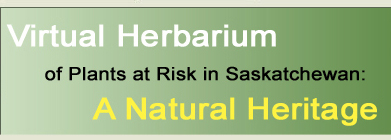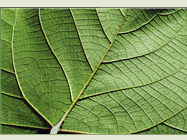
|

|

|

|

|

|

|
|
|
|
|
|
Species Image Gallery (opens in a new window) |
|||||||||
| THE ROSE FAMILY | |||||||||
| The rose family is one of the most
well known plant families in Saskatchewan. Plants in this family are trees,
shrubs or herbs. The shrubs or trees are commonly armed with prickles or
spines. The leaves can be simple or compound and frequently have a saw-toothed
margin. A pair of stipules is usually present at the base of the stem leaves.
The flowers are in various types of clusters or can be solitary. The flowers
are frequently brightly coloured and showy. The flowers have five sepals
and petals, five to many stamens in whorls and one to many fused or distinct
carpels. The fruits can be drupes (ex. cherry), pomes (ex. apple), or aggregates
of achenes (ex. strawberry), pods, or drupelets (ex. raspberry). Many fruit crops are members of the rose family. Cherry, apple, pear, raspberry and strawberry are examples. Roses are used for medicine and for their essential oils. Many roses are grown as ornamentals in gardens. |
|||||||||
| CUT-LEAVED CINQUEFOIL | |||||||||
| LATIN NAME: Potentilla bimundorum | |||||||||
| WHAT DOES IT LOOK LIKE? | |||||||||
| Cut-leaved cinquefoil grows as tall as 40 cm from a thick, branched, woody stem base. The leaves are divided into five to seven leaflets. The leaflets are divided into linear, closely spaced segments. The leaflets are stiff-hairy above and densely white-woolly below with rolled under margins. The flowers are yellow. The aggregate fruit is a cluster of dry, one-seeded fruits. | |||||||||
| WHERE DOES IT GROW? | |||||||||
| Cut-leaved cinquefoil grows on rock outcrops and ledges. | |||||||||
| WHERE IS IT FOUND IN SASKATCHEWAN? | |||||||||
| This plant is found in northern to eastern Saskatchewan in the Mid-Boreal Upland, Churchill River Upland, and Tazin Lake Upland ecoregions. | |||||||||
| WHY IS IT RARE? | |||||||||
| Cut-leaved cinquefoil is threatened because it is rare or uncommon in Saskatchewan. No threats known or anticipated for this species at the present time. | |||||||||
| HOW TO IDENTIFY CUT-LEAVED CINQUEFOIL | |||||||||
| * Are the leaflets divided into linear lobes? * Does the plant have a woody base? * Are the leaves white-woolly below and stiff-hairy above? * Did you find it in northern to eastern Saskatchewan? | |||||||||
If you answered yes to all of these questions, you may have found cut-leaved cinquefoil! |
|||||||||